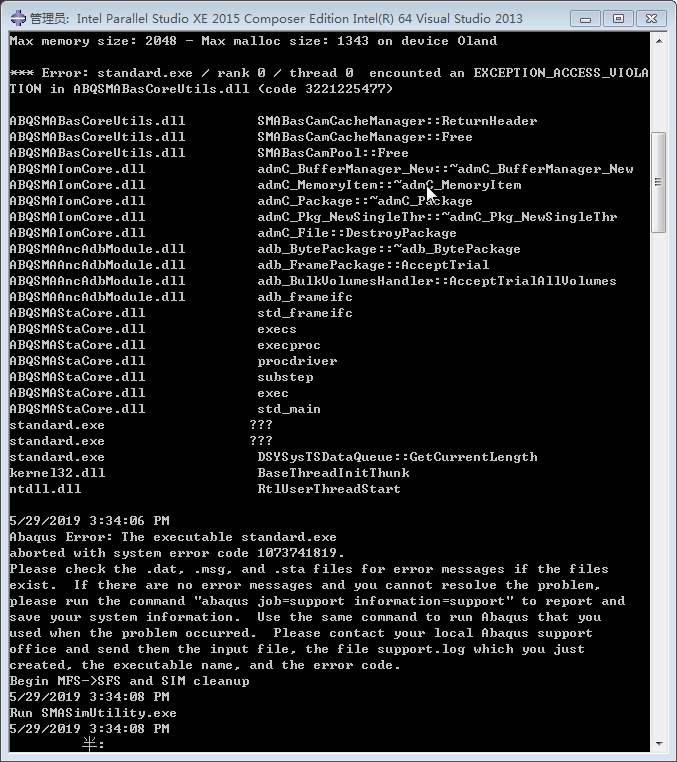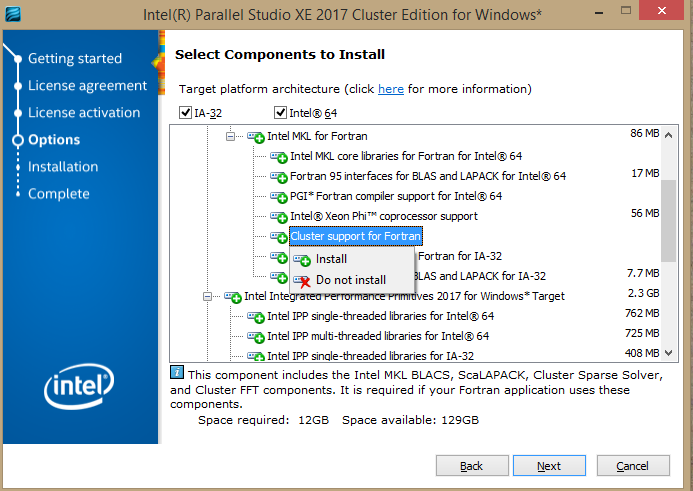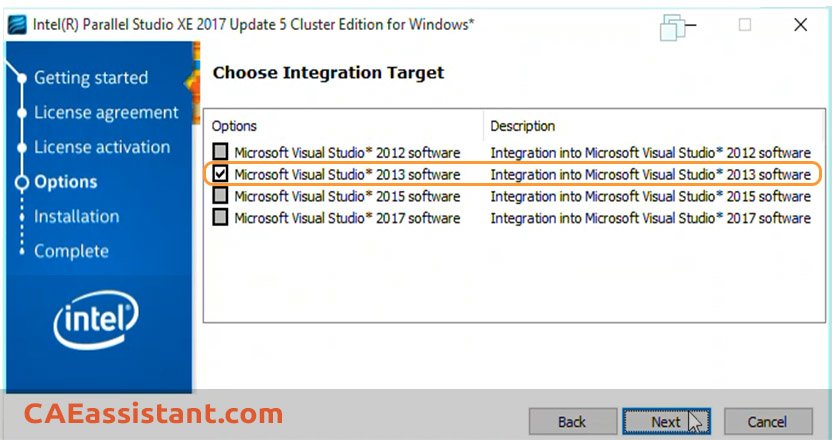
- #Intel fortran compiler license file software
- #Intel fortran compiler license file plus
- #Intel fortran compiler license file professional
- #Intel fortran compiler license file windows
NET* 2002 or 2003, Standard edition or above Microsoft Visual Studio*. One of the following Microsoft development products must be installed: Microsoft Visual C++*.
#Intel fortran compiler license file windows
Note: Microsoft Windows 98, Windows 98 SE, Windows Millennium Edition and Windows NT are not supported for product development, but are supported for application deployment.
#Intel fortran compiler license file software
Software Requirements to Develop IA-32 Applications Microsoft Windows* 2000, Windows XP or Windows Server 2003. Be sure to use at least the minimum amount of virtual memory recommended by the operating system.
#Intel fortran compiler license file plus
Minimum Hardware Requirements to Develop Applications A system based on an IA-32 processor (minimum 450 MHz Intel® Pentium® II processor or greater - Intel® Core™, Intel® Pentium® 4 or Pentium® D or Intel® Xeon® processor recommended), or a system based on an Intel® Itanium® 2 processor, or a system based on an Intel processor with Intel EM64T, or a system based on an AMD* Athlon* or AMD Opteron* processor For IA-32 systems, 256 MB of RAM (512 MB recommended) For other systems, 512MB of RAM (1GB recommended) 300 MB of free hard disk space, plus an additional 300 MB during installation for download and temporary files 100 MB of hard disk space for the virtual memory paging file. Visual Studio 2005 does not support installation on Itanium-based systems. Cross-platform development of Itanium-based applications is supported in Microsoft Visual Studio 2005 Team System Edition only. NET 20 support development of IA-32 applications only.

Note: The above table refers to use of the command-line build environment. Host and Target Combinations Host \ Target IA-32 Intel® EM64T Intel® Itanium® IA-32 Yes Yes Yes Intel® EM64T Yes Yes Yes Intel® Itanium® No No Yes The following table describes the supported combinations of compilation host (system on which you build the application) and application target (system on which the application runs). Not all combinations of cross-platform development are supported and some combinations may require installation of optional tools and libraries. The term "cross-platform" or "cross-compilation" refers to building an application on a platform type different from the one on which it will be run, for example, building on IA-32 to run on Intel® Itanium®-based systems. Native and Cross-Platform Development The term "native" refers to building an application that will run on the same platform that it was built on for example, building on IA-32 to run on IA-32. Intel Itanium® Refers to systems based on the Intel Itanium® 2 processor running a 64-bit operating system. Systems based on the AMD* Athlon64* and Opteron* processors running a 64-bit operating system are also supported by Intel compilers for EM64T-based applications.

#Intel fortran compiler license file professional
Intel EM64T Intel® EM64T (Intel® Extended Memory 64 Technology) refers to systems based on IA-32 processors which have 64-bit architectural extensions, running a 64-bit operating system such as Microsoft* Windows* XP Professional 圆4 Edition or Microsoft Windows Server 2003 圆4 Edition.

IA-32 IA-32 (Intel Architecture, 32-bit) refers to systems based on 32-bit processors generally compatible with the Intel Pentium® II processor, (for example, Intel® Core™, Pentium® 4, Pentium® D, Celeron® or Intel® Xeon®), or processors from other manufacturers supporting the same instruction set, running a 32-bit operating system. This section explains the terms that Intel uses to describe the platforms in its documentation, installation procedures and support site. System Requirements Processor Terminology Intel compilers support three platforms: general combinations of processor and operating system type. Microsoft Visual Studio 2005 + Microsoft Platform SDK for windows server 2003 + Intel Visual Fortan 9.0/9.1, for any Windows XP 32 bits or Windows XP 64 bits.


 0 kommentar(er)
0 kommentar(er)
